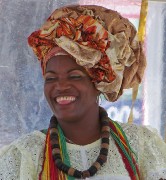Klaus Hart Brasilientexte
Aktuelle Berichte aus Brasilien – Politik, Kultur und Naturschutz
„Urban Space“. Brasiliens wichtigster Befreiungstheologe Frei Betto.
Only a few houses built before 1930 are still standing in Brazilian cities as most were knocked down by real estate speculation and our insensitivity to preserving historical memory.
Older houses have their front doors right on the sidewalk. There was a time when some had small front gardens and people would place chairs on the sidewalk for a chat at sundown. The living room and even the bedrooms opened onto the road, since there was hardly any outside noise.
Little by little houses began to be set back from sidewalks. The back garden became smaller and the front garden expanded. The noise of trams, buses and trucks meant that the living room and bedrooms had to be in the back.
My home was on a corner in the middle of a garden. The low front wall was only for show. As a child I preferred jumping over the wall rather than using the gate.
http://www.hart-brasilientexte.de/2008/02/13/amazonia-an-ecocide-foreseen/
The urban explosion and its violence changed the housing scene. Nowadays with their high walls and railings impossible to climb over, houses hide their “faces”. Many adopt a prison look with electrified fences, security cameras, gates worked by remote control, etc. Some even have guards sitting at the gate and spotlights which light up when anyone passes by.
Apartment buildings caused vertical living and, when possible, opened up spaces for people to avoid as much as possible having to move on the “dangerous” place known as the street. Thus, luxury buildings appeared with swimming pools, gyms, playgrounds, areas for barbecues, party rooms, etc.
However it became difficult for residents who suffer in open spaces either from multitudes or crossing roads: they would still have to go out to stock up at supermarkets, fruit shops or stores.
The supermarket swallowed most of this up when it concentrated everything needed in the home, from food to cleaning products, in one space. The advantage being that merchandise was at arm’s reach and no employee waited for a quick choice to be made.
However it was not convenient for supermarkets to display shelves with jewellry, shoes or clothing. Thus the shopping centre was created, where every type of product is to be found, from the supermarket (fresh vegetables), to articles for fishing and which also includes snack bars, restaurants, cinemas and theatres.
Now a new concept has appeared: the Atoll, a super shopping centre (71,000 sq.m) built close to the town of Angers, in France. The whole place is “ecologically correct”. There is no logo on its aluminium exterior. No visual pollution.
As well as 60 shops and 12 restaurants, the Atoll has gyms, beauty parlours, playgrounds, parks with fountains and avenues with trees and flowers. While parents shop, children play in huge areas or watch DVDs under the eye of specialised employees.
Atoll’s marketing philosophy is simple: leave your small home and family stress and enter the Garden of Eden of consumerism, where you can enjoy refinement, green spaces and the attention of elegant receptionists. In other words, Atoll sells more than material products: it sells the illusion that the consumer is equal in status to those who are more wealthy.
Since dreams and ambitions in a class society are socialised but not readily accessible, Atoll offers a lounge for those who spend at least €1500, where the consumer has free access to the internet, to drinks, magazines and newspapers, coffee machines and even baby changing facilities.
As things are going, I won’t be surprised if future shopping centres offer hotel services, permitting consumers, at the height of their individualism, to free themselves from family life.
*Frei Betto is a writer, author of “O que a vida me ensinou” (What life has taught me) (Saraiva).
« „Boomland“ Brasilien: Wegen Wirtschaftsabschwung wächst in Sao Paulo und Rio de Janeiro der Büro-Leerstand kräftig – ist weit höher als in Santiago de Chile, Caracas oder Buenos Aires. Kuriose Schönfärbung der brasilianischen Wirtschaftslage, wie in den letzten Jahren in Mitteleuropa lukrativ betrieben, nun nicht mehr möglich. – Der Energiewende-Bluff: Uraltfakten vom Spiegel zur vom Steuerzahler enorm subventionierten Solarindustrie. »
Keine Kommentare
Bisher gibt es keine Kommentare.
Die Kommentarfunktion ist zur Zeit leider deaktiviert.
NEU: Fotoserie Gesichter Brasiliens
Links zum Thema Ukraine
Fotostrecken Wasserfälle Iguacu und Karneval 2008
interessante Links
Seiten
Ressorts
- Kultur (6.975)
- Naturschutz (1.101)
- Politik (12.729)
Suchen
RSS-Feeds
Verwaltung



